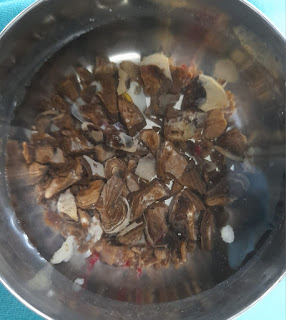World Mental Health Day – 10th October

About :
Every year World Mental Health Day is observed on 10th October worldwide to raise awareness on mental health issues, how we need to look after it and mobilize efforts in support of mental health and advocacy against social stigma. The COVID-19 pandemic has created a global crisis for mental health, fueling short and long term stresses and undermining the mental health of millions. The theme for 2022 is ‘Make mental health and wellbeing for all a global priority’.
Types of mental disorders :
1) Anxiety disorder – A group of mental health disorder characterized by feelings of worry, anxiety or fear and people with this disorder respond to certain objects or situations with fear and dread, physical signs of panic such as rapid heartbeat and sweating. There are several types like, generalized anxiety disorder, panic disorder, social anxiety disorder, obsessive compulsive disorder (OCD), post traumatic stress disorder, agoraphobia, selective mutism, separation anxiety disorder and various phobia related disorders.
2) Mood disorders – Also called affective disorders, it involves persistent feelings of sadness or overly happy, or fluctuations from both extreme happiness or sadness. The most common among them are depression, bipolar disorder and cyclothymic disorder.
3) Psychotic disorders – They involve distorted awareness and thinking. The most common symptoms are hallucinations and delusion.
4) Depression – It is a mood disorder characterized by lowering of mood, loss of interest, enjoyment and reduced energy. Symptoms of depression can lead to increased risk of suicidal thoughts or behavior.
5) Bipolar disorder – It is a mood disorder and referred to as ‘manic depression’. A person suffering from this experiences episodes of mania and depression along with psychotic symptoms. Genetic and environmental factors contribute to this mental illness.
6) Post-Traumatic Stress Disorder (PSTD) – This mental health condition is developed as a response to a traumatic or terrifying event. People with PSTD often have frightening thoughts and memories and tend to be emotionally numb.
7) Schizophrenia – A complex psychotic disorder with widely varying symptoms, including hallucinations, delusion, thought disorder, lack of motivation, impaired thinking and memory.
8) Eating disorder – This disorder involve extreme emotions, attitudes and behaviours involving weight and food. The most common among them are anorexia, bulimia and binge eating.
9) Disruptive behavior and dissocial disorder- These are a group of disorders linked by varying difficulties in controlling aggressive behavior, self control and impulses. The most common types are Oppositional Defiant Disorder (ODD) and Conduct Disorder (CD). Some examples include fighting, destroying property, defiance, stealing, lying and rule breaking.
10) Neurodevelopmental disorders :
i) Impulse control and addiction disorder
ii) Personality disorder
iii) Obsessive-compulsive disorder (OCD)
iv) Paranoia
v) Psychosis
Symptoms :
· Feeling sad or down
· Reduced concentration and confused thinking
· Excessive fears or worries, or excessive feelings of guilt
· Extreme mood changes
· Withdrawal from friends and activities
· Being easily fatigued, low energy or problem sleeping
· Detachment from reality, paranoia or hallucinations
· Inability to cope with daily problems or stress
· Trouble understanding and relating to situations and to people
· Problems with alcohol or drug use
· Major changes in eating habits
· Excessive anger, hostility or violence
· Suicidal thinking
· Feeling restless, irritable, wound up, or on edge
· Panic, fear and uneasiness
· Shortness of breath or breathing rapidly
· Increased heart rate
· Headaches, muscle aches, stomachaches or unexplained pains
Treatment :
1) Medications - Antidepressants, Anti-anxiety medications, Mood stabilizing medications, Antipsychotic medications.
2) Psychotherapy – Behavioural therapy, Cognitive therapy, Interpersonal therapy, Psychoanalysis, Psychodynamic psychotherapy, Supportive psychotherapy.
3) Brain stimulation treatments
4) Hospital and residential treatment programs
5) Substance misuse treatment
6) Self help plan
Conclusion :
Mental health care should be strengthened so that the full spectrum of mental health needs are fulfilled through a community-based network of accessible, affordable and quality support and services. Untreated, anxiety disorders can lead to significant impairment on people’s daily lives.


Comments
Post a Comment